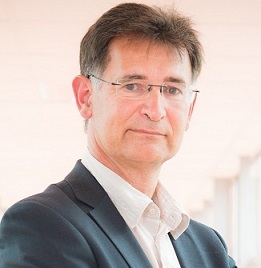Keynote by Prof. Jean-Marc Jézéquel
Tuesday, June 22, 2021

Title: A Tale of Taming Variability with MDE
Slides: available here
Abstract: Finding better ways to handle software complexity (both inherent and accidental) is the holy grail for a significant part of the software engineering community, and especially for the Model driven Engineering (MDE) one. To that purpose, plenty of techniques have been proposed, leading to a succession of trends in model based software development paradigms in the last decades. While these trends seem to pop out from nowhere, we claim that most of them actually stem from trying to get a better grasp on the variability of software. We revisit the history of MDE trying to identify the main aspect of variability they wanted to address when they were introduced. We conclude on what are the variability challenges of our time, including variability of data leading to machine learning of models.
Jean-Marc Jézéquel is a Professor at the University of Rennes and a member of the DiverSE team at IRISA/Inria. From 2012 to 2020 he was Director of IRISA, one of the largest public research lab in Informatics in France. In 2016 he received the Silver Medal from CNRS and in 2020 the IEEE/ACM MODELS career award.
His interests include model driven software engineering for software product lines, and specifically component based, dynamically adaptable systems with quality of service constraints, including security, reliability, performance, timeliness etc. He is the author of 4 books and of more than 300 publications in international journals and conferences. He was a member of the steering committees of the AOSD and MODELS conference series. He is currently Associate Editor in Chief of IEEE Computer and of the Journal on Software and System Modeling, as well as member of the editorial boards of the Journal on Software and Systems, and the Journal of Object Technology. He received an engineering degree from Telecom Bretagne in 1986, and a Ph.D. degree in Computer Science from the University of Rennes, France, in 1989.